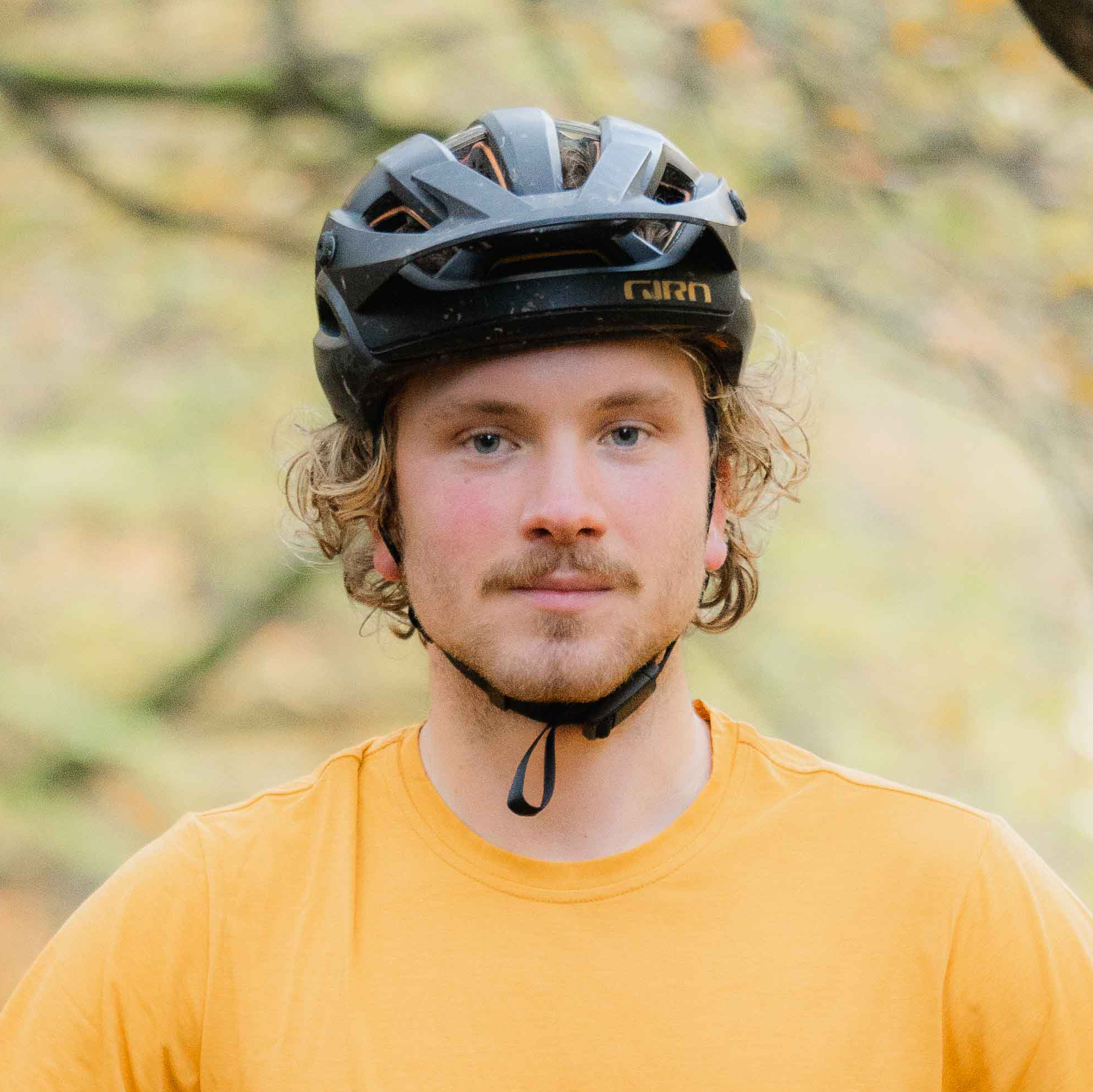Revolution Bike Park was one of the UK’s most-loved riding locations – until a devastating tree disease forced ‘Revs’ to close its doors indefinitely in January.
Known worldwide for its expertly sculpted trails, flowing through 100 acres of woodland, the lift-assisted park in Llangynog, north Wales, will be missed by pros and weekend riders alike.
The family-run business was founded at the end of 2012 by brothers James and Tim Foster, becoming one of Wales’ first lift-assisted bike parks. Revs continued to grow in popularity and expanded its trail network continuously, becoming a must-ride spot for mountain bikers from all over the UK.
But the discovery of Phytophthora Ramorum in the Japenese larch trees that make up the surrounding forest resulted in the sudden closure of Revolution Bike Park.
We sent MBUK’s video team to Revs for one last ride – and to find out if there could still be a future for the bike park.
The Revolution vision
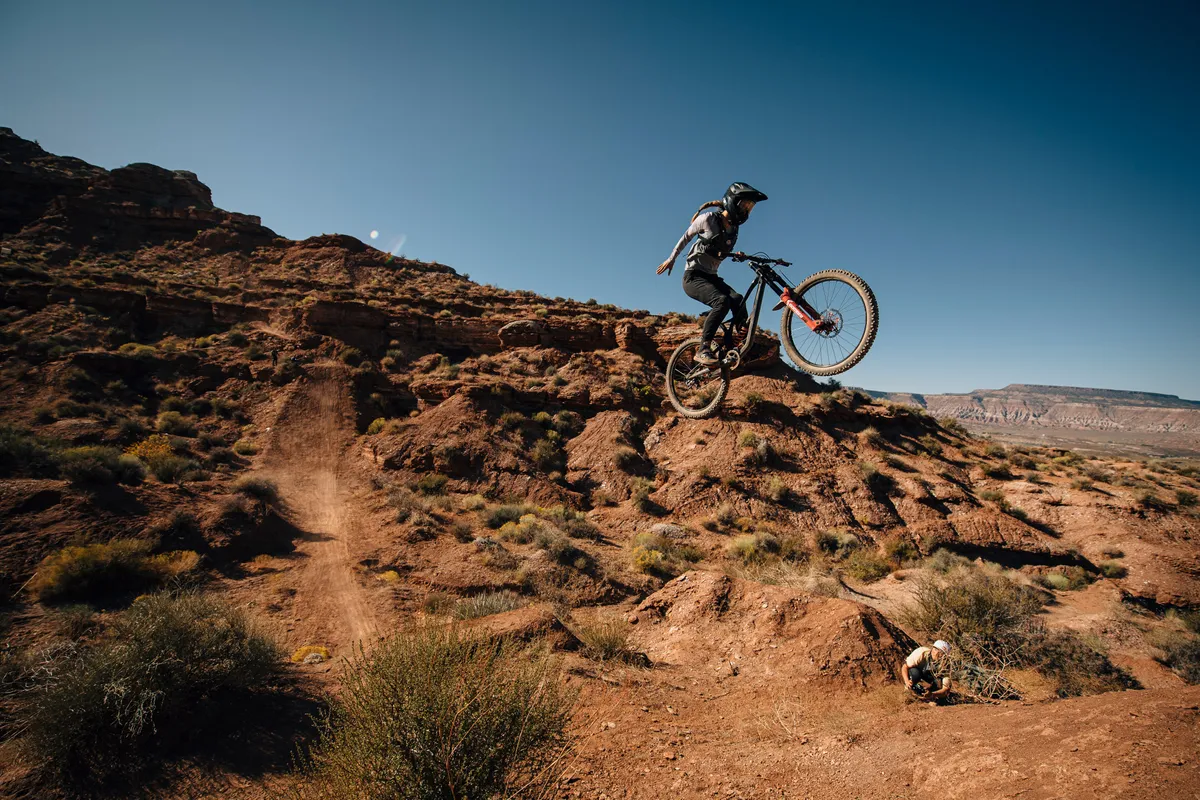
Having established a reputation as one of the UK’s premier bike parks, with jump lines to rival the very best in the world, Revs hit the big screen in 2019, starring in Veronique Sandler’s freeride MTB film, Vision.
The film left a legacy in the shape of the Vision pro line, designed by Sandler and James Foster, and which remained open to the public as a permanent fixture of the park.
“There have been so many people coming to ride at Revs from all over the world,” says Sandler, a pro freeride athlete, on the impact of Vision. “They’ve seen the videos of people shredding here and they want to come and experience it for themselves.”
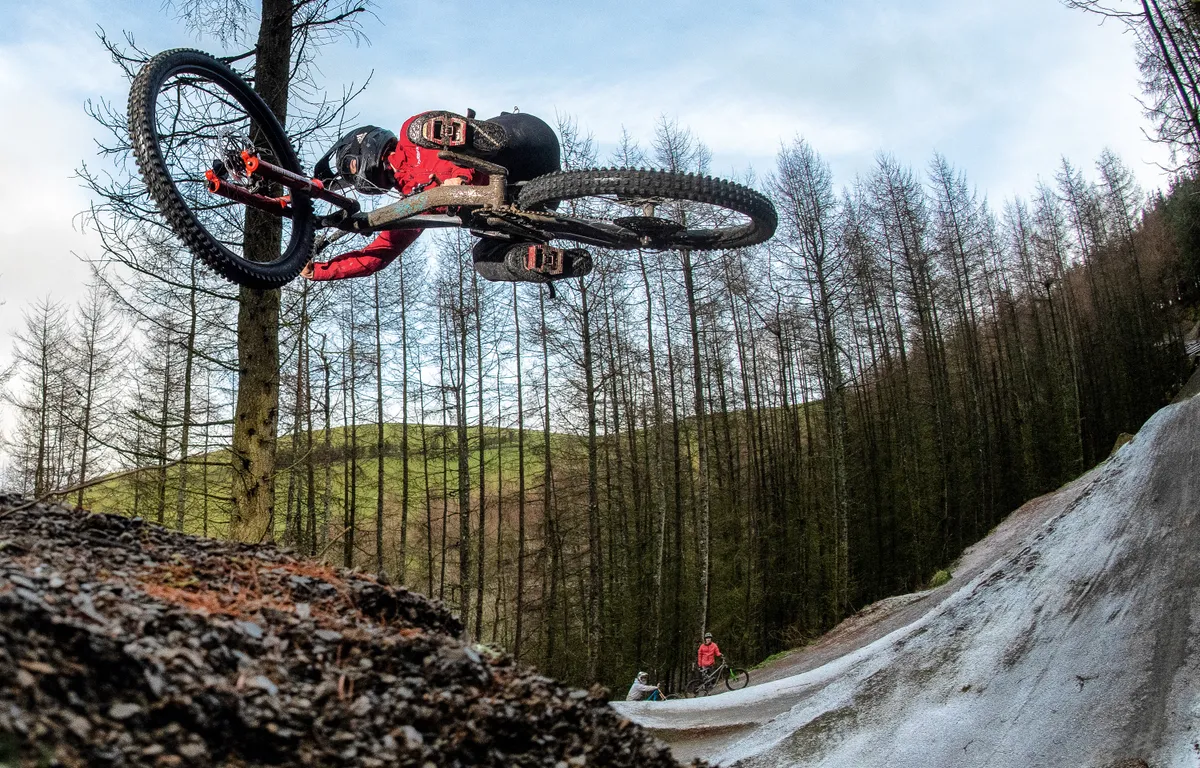
Alongside flowy jump lines such as Vision and 50/01, Revolution Bike Park was also home to some of the best technical downhill tracks in the UK, becoming a regular training ground for professional downhill racers Tahnée Seagrave and Kade Edwards.
“You can go from a big flowy jump track to some of the steepest, gnarliest tech you could wish for in one run,” says Becci Skelton, the 2019 British Downhill Series elite champion, of the variety of trails on offer at Revs.
The beginning of the end
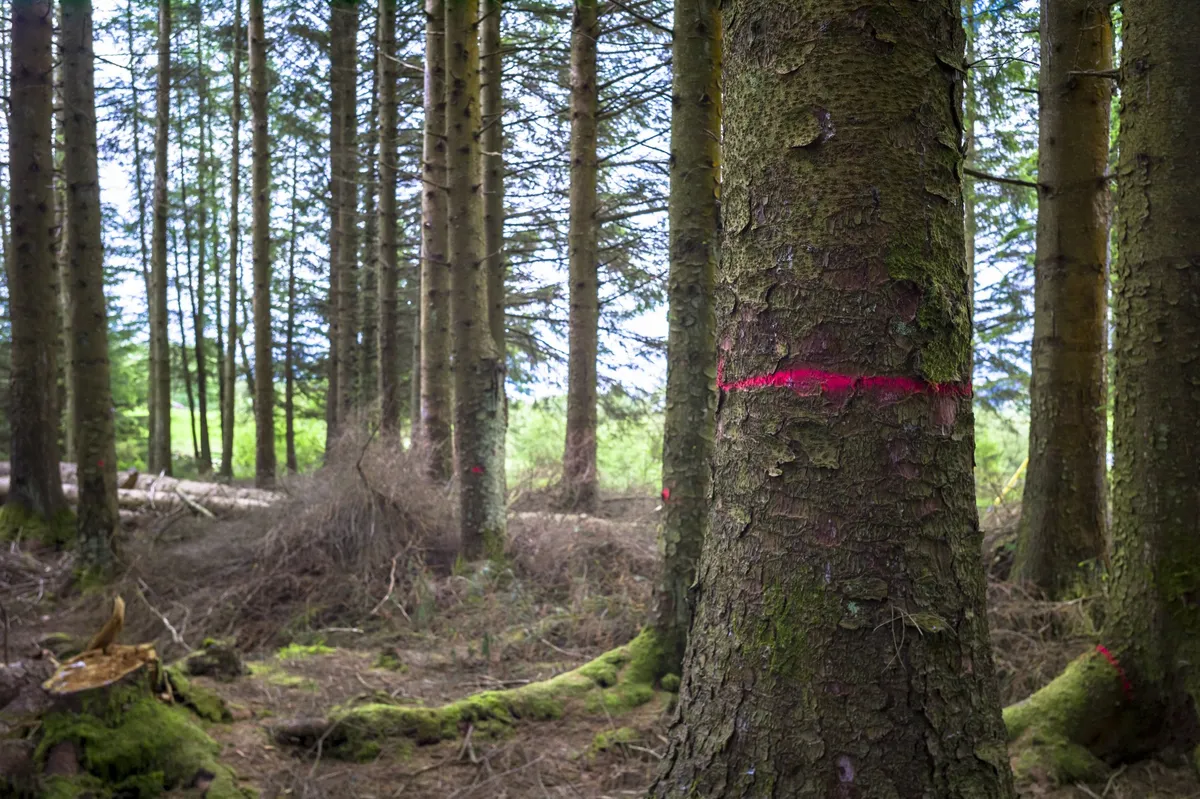
Revolution Bike Park was built within a commercial forest, owned by the Foster family, which is largely made up of Japanese larch trees.
Larch trees are highly susceptible to Phytophthora Ramorum, described by The Woodland Trust as a “fungal-like organism that causes the death of a wide range of trees and shrubs”. The greatest impact, the conversation charity continues, has been felt on larch plantations, resulting in thousands of hectares of felling around the UK.
The disease, found worldwide, was first discovered in the UK in 2002, having been spread by the international plant trade. Since then, it has spread naturally by wind-blown rain and low cloud, as well as unnaturally by cross-contamination of soil spread by muddy tyres and shoes.
As part of a last-ditch effort to stop the spread of Phytophthora Ramorum spores, the landowners of affected forests issued an official notice to fell all larch if the disease is detected on their property.
The arrival of Phytophthora Ramorum
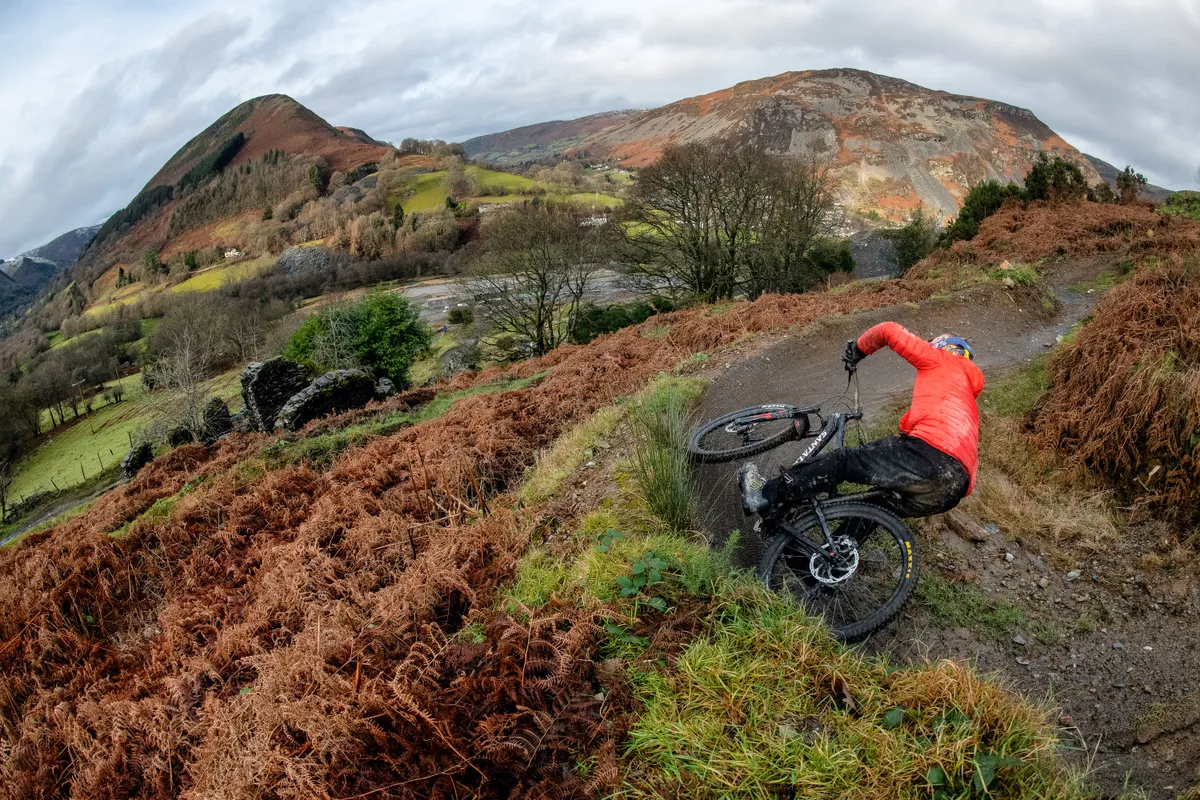
“Revs is housed within a commercial forest, which we own,” explains Tim Foster. “About two-thirds of the forest is made up of Japanese larch, which is affected by Phytophthora Ramorum. We always knew that this was a risk and we’ve been managing the situation since we got here.
“Unfortunately, at the end of 2022, we got a notification that the disease had been found in our trees and, as such, we had no choice but to fell the whole forest.”
Although initially only around 15 trees at Revs were found to be infected in October 2022, by law, all larch trees in the park have to be clear felled.
That announcement dealt a significant blow to the UK freeride scene, with riders flocking to Llangynog in the final months before the park’s closure in January.
“I think a lot of people were in shock when they heard the news,” James Foster explains. “But when that initial shock wore off a lot of our customers came to ride one last time and the bookings went absolutely mental.”
Preventing the spread
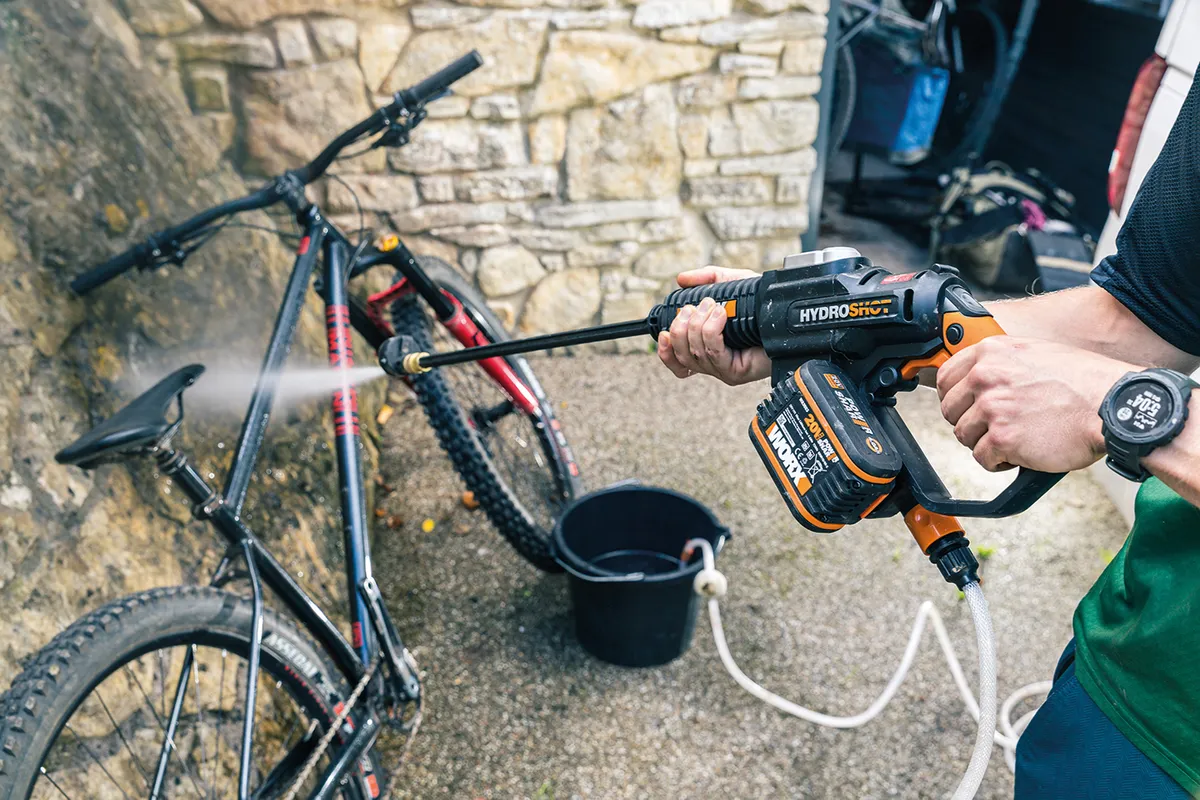
Revs is far from alone in being impacted by Phytophthora Ramorum. We reported on the risk to Afan's trails in 2010, enduro riders in Scotland were asked to use bike wash stations to prevent the spread in 2019 and, since the first report of Phytophthora Ramorum in the UK, the disease has prompted biosecurity measures across the country.
The Forest of Dean Cycle Rangers have issued a reminder to riders following the closure of an area of woodland for felling.
Revolution Bike Park had, in the decade since it opened, become one of the UK’s most popular uplift destinations, attracting riders from all over the country, if not the world – and the team behind Revs had already taken a proactive approach to prevent the spread of Phytophthora Ramorum as a result.
“For years, we’ve had a clean bike policy,” says Foster. “That’s the one thing that we as mountain bikers can do to prevent Phytophthora Ramorum from spreading. When we go to ride all these different venues, we have to make sure that we’re taking clean bikes and clean kit and not transferring mud from one place to another.”
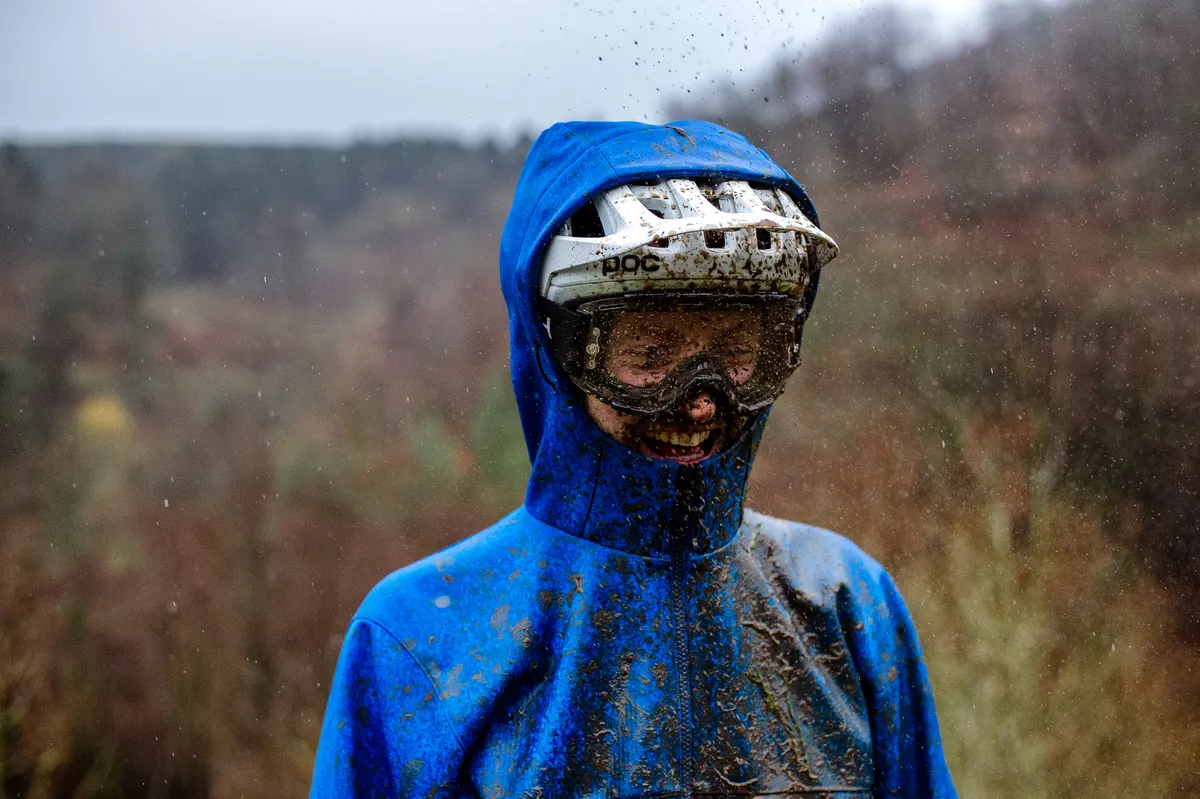
Although the disease is commonly spread by wind and rain, Phytophthora Ramorum creates a long-lived structure that contaminates the soil surrounding an infected tree.
Thoroughly washing your bike, shoes and riding kit, before heading to a new venue, can help prevent the spread of contaminated dirt in an otherwise unaffected forest.
there are a few things we as mountain bikers can do to play our part in preventing contaminated dirt from being deposited in an otherwise unaffected forest.
Is there a future for Revs?
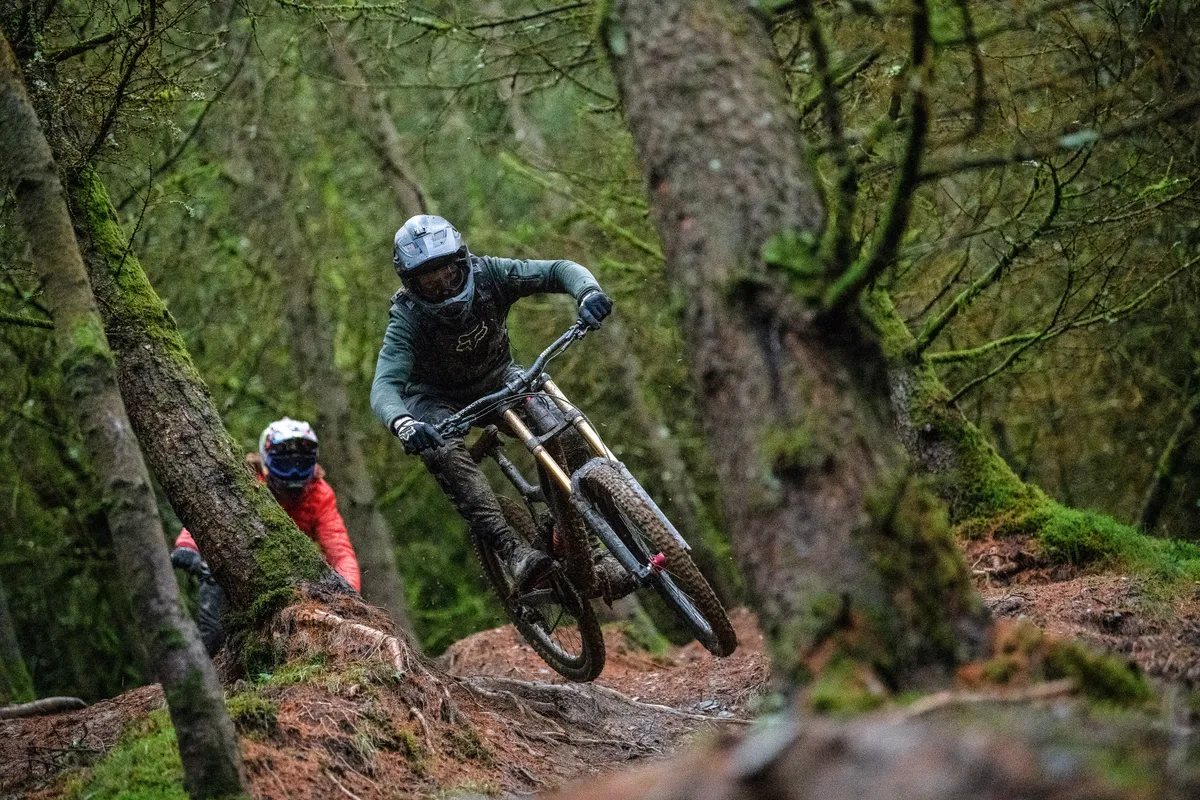
Although the news of Revoltion’s closure came as a sudden shock to riders, as well as the local Llangynog community and the bike park’s employees, there remains a glimmer of hope for the future of the bike park.
Felling operations will, undeniably, have a devastating effect on the bike park’s existing trails, but the site’s owners remain positive that, once the larch has been removed in one fell swoop, Revs will have the chance to be reborn on a clean slate.
“Any of the options that would allow us to carry on operating [while the forest is being felled] are terrible options for our customers,” says Tim Foster. “We have a shot here to solve this problem, reinvent the park and come back better. That, for me, is the only option.”
